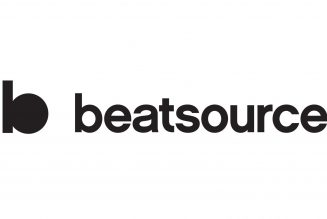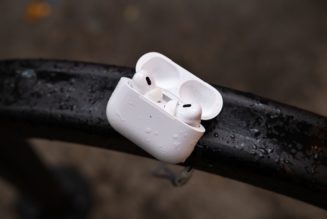
The composer and bandleader — a Grammy favorite and a fierce advocate for artists’ rights — takes on the ‘Data Lords’ with her newest album.
When Maria Schneider sits down to write music, it is seldom with a specific idea in her head. Lately, though, the celebrated orchestral jazz composer and bandleader — a five-time Grammy winner and a National Endowment for the Arts Jazz Master — has had a lot on her mind.
“Early on, I became very aware that big data companies were using musicians as carrots so that they could gather data from users,” says Schneider, 59. “And this has been a huge frustration for me. It has really destroyed the music industry for those that make the music, and now I feel that for our society at large it’s a catastrophic loss.”
That frustration fueled the ideas she explored with her 20-piece orchestra on her latest release, the double-album Data Lords. The first half (“The Digital World”) challenges the Big Tech companies central to the lives of most Americans in 2020 with compositions rife with intricate tensions; the second (“Our Natural World”) celebrates the simplicity, fragility and creativity of life beyond the iPhone, where clouds merely hold precipitation, not the entire mirror image of a person’s life. (An 11-minute track called “Bluebird” was inspired by Schneider’s own experience as an avid birdwatcher.)
Data Lords began taking shape a few years back, after Schneider collaborated with David Bowie on “Sue (Or in a Season of Crime)” from his final album, 2016’s Blackstar. “He was very attracted to my more intense music I wrote years ago, and it sort of brought that out in me,” says Schneider. “As I started delighting in writing more intensely, it aligned with my frustration with data and those pieces came out. But at the same time, in my life I love coming to the country, completely unplugging, sitting with silence and beauty and nature, or just in my own imaginary world. Pieces came out of that, too. So I ended up with this very disparate world.”
It’s that duality that makes Data Lords a strong candidate to bring her yet another Grammy in the best large jazz ensemble album category, which she has won twice before. “I think of Maria as one of the most daring and adventurous composers of the past several decades,” says veteran critic and Columbia University journalism professor David Hajdu. “This new record is her masterpiece — the coming together of her political self and her musical self. There’s beauty and programmatic evocation of natural wonders in this that’s Maria Schneider music, but also several new kinds of Maria Schneider music, too. It’s really extraordinary.”
Schneider has been making music since the 1980s, and over the years has watched the industry turn from a business profitable enough to support genres and artists outside of the mainstream to one defined by and dependent on the data-driven mentality of Big Tech companies like Google, Amazon and Apple. The streaming business is especially hard on genres like orchestral jazz, which are both out of the mainstream and — because of the number of musicians involved — relatively expensive to work in. So over the years, Schneider has become one of the most visible and outspoken advocates for creators’ rights.
In addition to writing op-eds and blog posts about the danger of Big Tech’s access to consumers’ data, she speaks at colleges to young musicians about the danger it poses to the future of their profession. In 2014, she testified before Congress about YouTube’s notice-and-takedown policies, especially regarding how hard the company makes it for independent musicians to use the ContentID system that could keep their works off the service. In July, she filed a putative class action suit against YouTube, alleging that its denial of ContentID to independent creators who don’t license their music to the company leave them with “no meaningful ability to police the extensive infringement of their copyrighted work.” (Such creators can still file Digital Millennium Copyright Act takedown notices, which is more time-consuming.)
“Imagine the setting in 2014 during this hearing: Here is an artist whose main job is to create music and she’s testifying for the first time, sitting on a panel with professional lobbyists and lawyers and the general counsel for Google,” says Daryl Friedman, chief industry, government and member relations officer at the Recording Academy. “That she would speak so powerfully to the committee about the issues in that setting [highlights] one of the most important factors that she brings: courage.”
Schneider’s own work has benefited from the use of ArtistShare, a crowdfunding platform founded two decades ago by musician Brian Camelio, that she has used since 2004 to release her music independently. She relies on sales to her dedicated fans, plus commissions, to pay for her recordings, which can cost up to $250,000 per album, with rehearsal sessions running $3,000 apiece. “She’s deeply concerned about her fans, is a very astute businessperson, and she works like crazy,” says Camelio, adding that his platform helped Schneider’s 2004 Concert in the Garden become the first fan-funded album to win a Grammy.
Schneider’s music, unsurprisingly, is not available on streaming services or as a download from anywhere besides her own site. But Data Lords, for example, can be purchased as a high-resolution download ($24.95), a two-CD set with premium packaging ($34.95) and a larger package that includes downloadable music charts, higher-res downloads of rhythm sections without solos, streamed interviews with the band and a video documenting the album’s creation ($85).
“Two million fans that listen to my music on YouTube or Spotify doesn’t pay for a quarter-of-a-million-dollar record, but 10,000 dedicated fans who pay for my music on my site does,” says Schneider. “If somebody in the tiny little market like I am, with the tiny little niche audience I have, can pay for a quarter-of-a-million-dollar album, imagine what somebody like Taylor Swift could do?”
Schneider acknowledges that while she’s making a profit from her music, it’s not nearly what she could, or should, be earning. At this point in her career though, fighting for the next generation of musicians to prevail in the face of the “data lords” is what animates her — and what gives her new music such urgency. “I want them to wake up, to be aware of how they’re being used,” she says. “I’ve kind of had it with big data companies using people. And they’ve used musicians for a hell of a long time.”
This article originally appeared in the Sept. 19, 2020, issue of Billboard.










